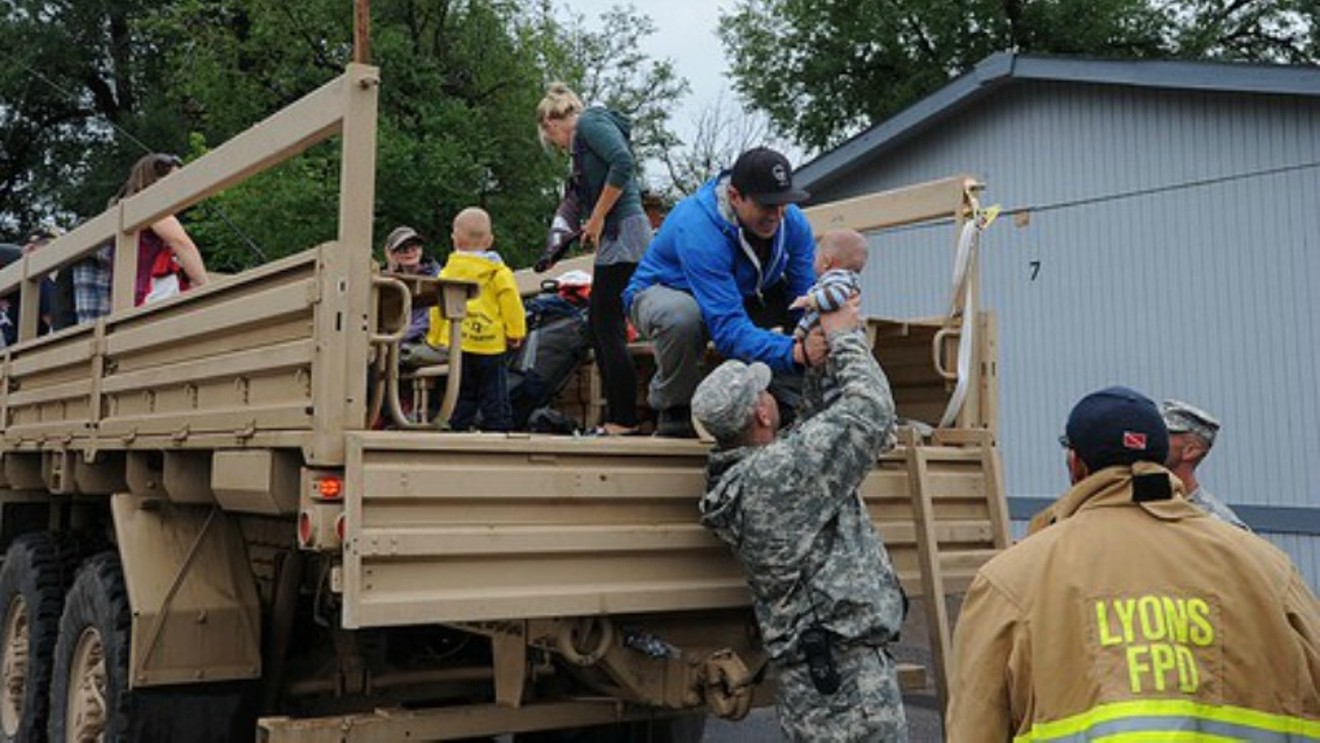The eleven-page document was obtained by the Associated Press, which notes that it "calls for the unprecedented militarization of immigration enforcement as far north as Portland, Oregon, and as far east as New Orleans, Louisiana." The report adds: "Four states that border on Mexico were included in the proposal — California, Arizona, New Mexico and Texas — but it also encompasses seven states contiguous to those four — Oregon, Nevada, Utah, Colorado, Oklahoma, Arkansas and Louisiana."
Colorado isn't mentioned by name in the memo. Instead, the reference mentions "those States adjoining border States." Moreover, governors of the states in question would be allowed to choose whether or not to participate. But as is clear from the passage below, the memo implies that pressure would be brought to bear on such officials if they balked. It reads:
To maximize participation by state and local jurisdictions in the enforcement of federal immigration law, I am directing the Director of ICE to engage with all willing and qualified law enforcement jurisdictions for the purpose of entering into agreements under section 287(g) of the INA. Additionally, I am directing the Commissioner of CBP and the Director of ICE to immediately engage with the Governors of the States adjacent to the land border with Mexico and those States adjoining such border States for the purpose of entering into agreements under section 287(g) of the INA to authorize qualified members of the State National Guard, while such members are not in federal service, or qualified members of a state militia or state defense force under the command of the Governor, to perform the functions of an immigration officer in relation to the investigation, apprehension, and detention of aliens in the United States.In response to the uproar over the report, White House press secretary Sean Spicer issued the following tweet:
Thus far, it's unclear whether the Trump administration is claiming that the memo itself is bogus. A DHS official cited by the AP "described the document as a very early draft that was not seriously considered and never brought to the secretary for approval."This is not true. DHS also confirms it is 100% false https://t.co/MFIJci7XaU
— Sean Spicer (@PressSec) February 17, 2017
Whatever the case, it's a fascinating artifact that may offer insight into the extremes to which President Trump and his underlings are willing to go to identify and deport undocumented individuals in Colorado and beyond.
Here's the document. The excerpt above can be found toward the bottom of page three.












